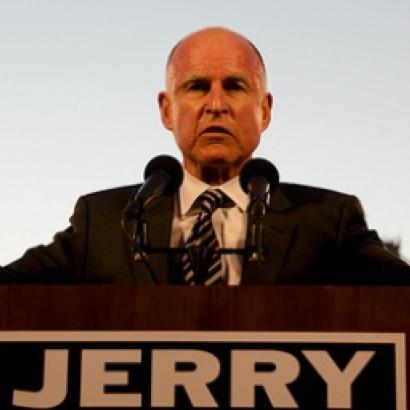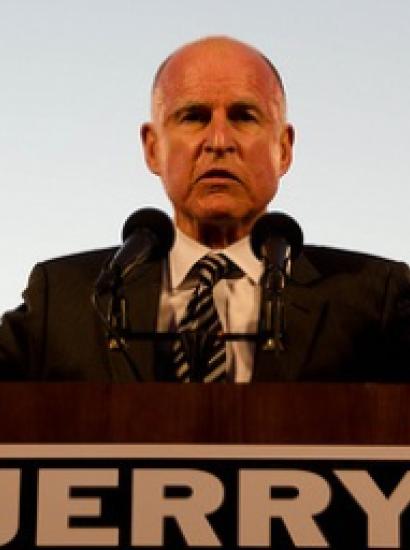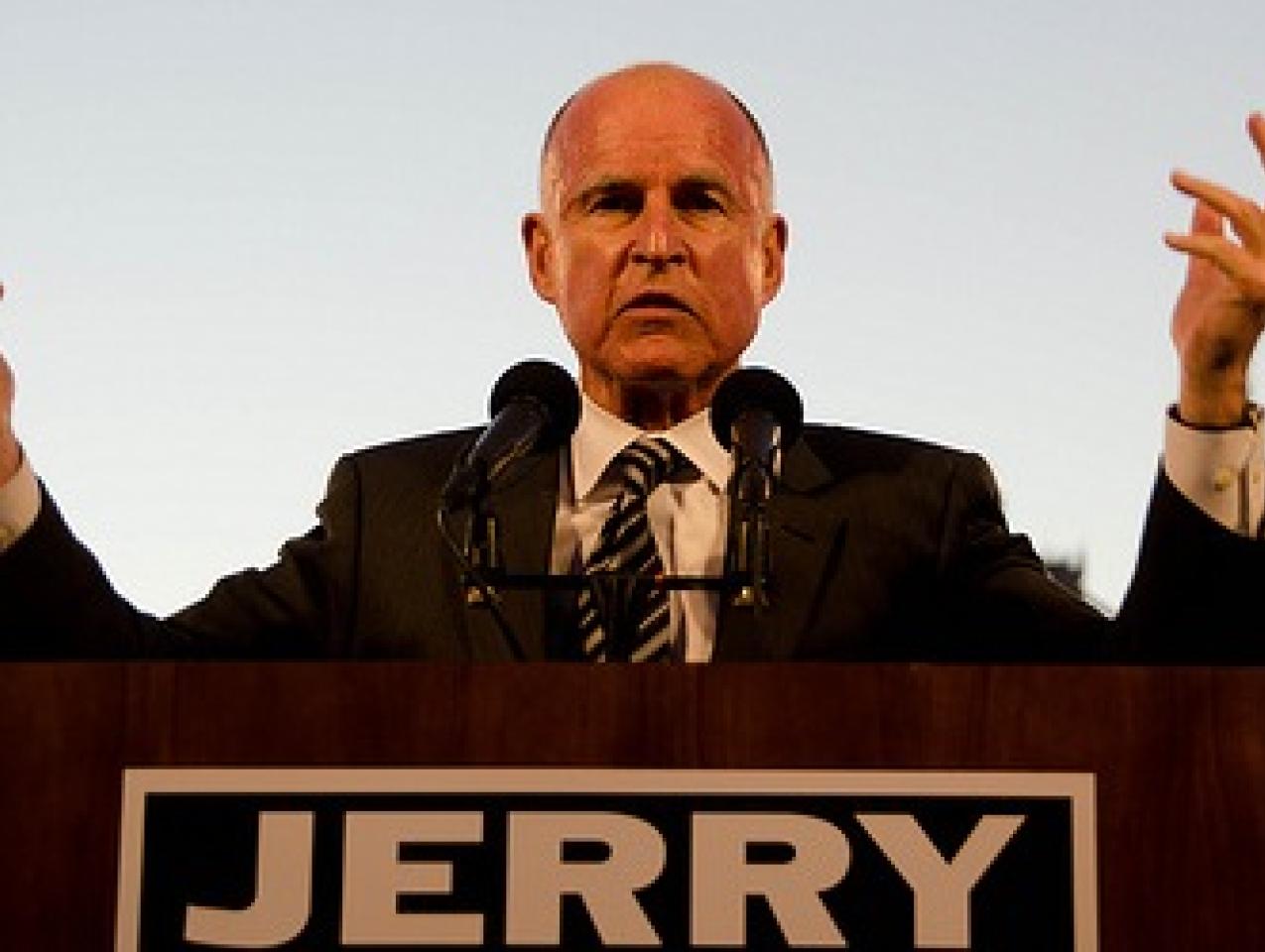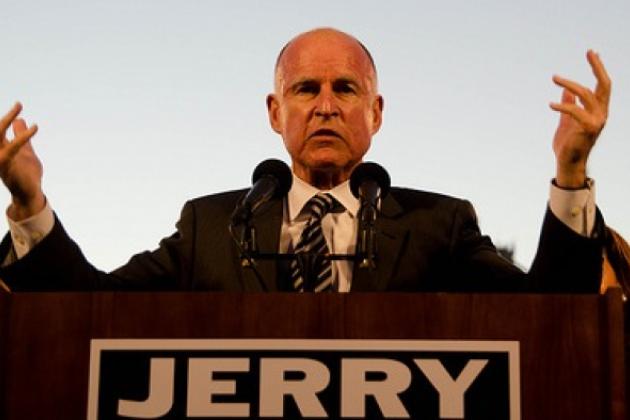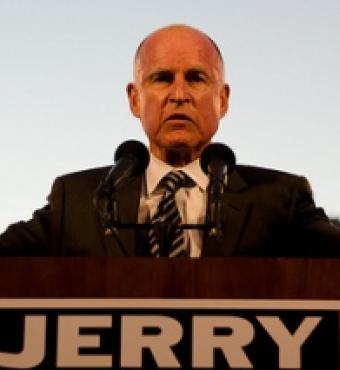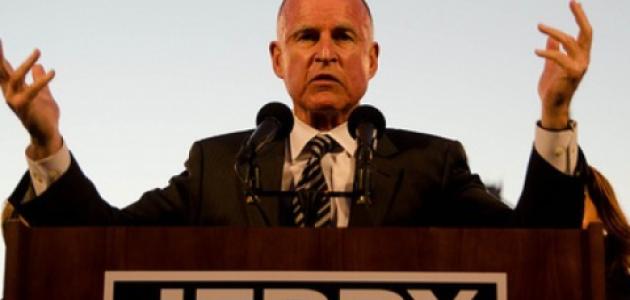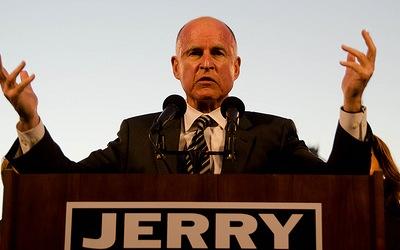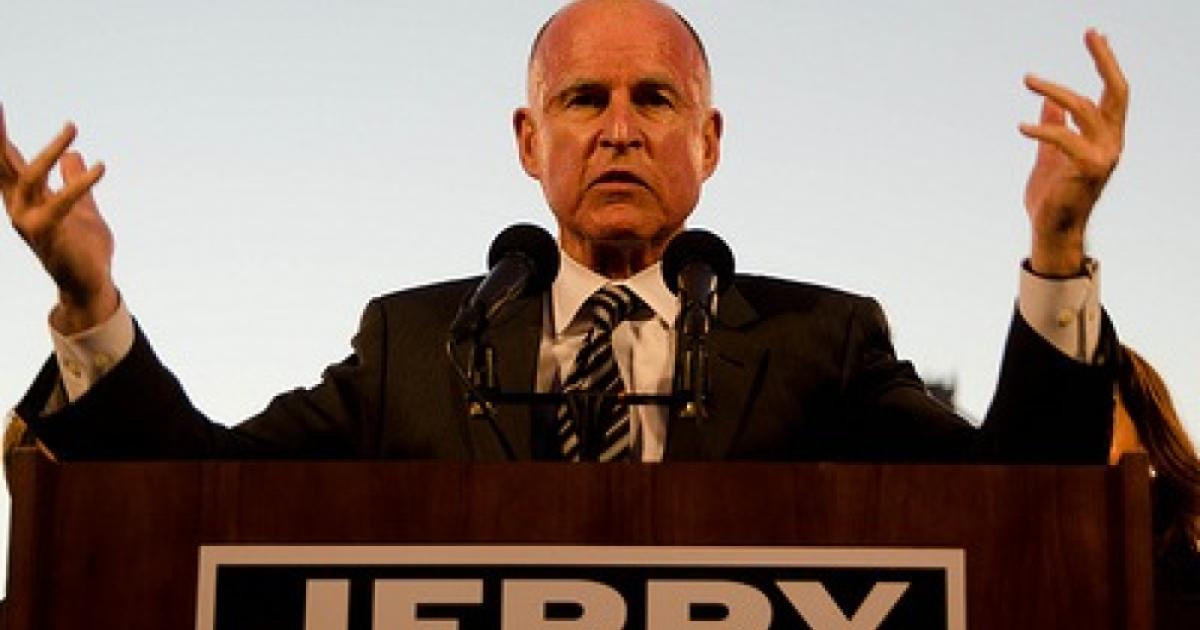- Politics, Institutions, and Public Opinion
- State & Local
- California
Editor’s Note: Between Aug. 27 and Sept. 5, the Hoover Institution’s Golden State Poll—a partnership between Hoover and the online polling firm YouGov—surveyed 1,000 Californians on economic and energy/environmental issues. Three more such polls will be conducted over the next year, periodically checking the Golden State’s pulse on economic, policy, and political topics.
Since November’s election and, with it, a referendum in the Golden State on higher taxes—Gov. Jerry Brown’s Proposition 30—reporters have a new pet story: the so-called “California Comeback” and the tale of a state that’s rediscovered its economic footing.
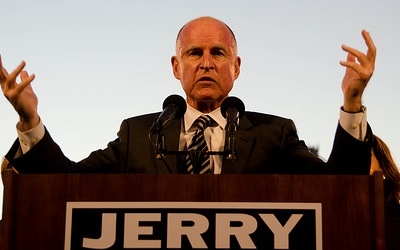
Photo credit: Steve Rhodes
However, judging by the results of the Hoover Institution’s latest Golden State Poll, which surveyed Californians on their economic confidence, the resurgence is fragile, with skepticism easily trumping optimism.
Following the passage of Prop 30, the state became flush with tax revenue, helping to “balance” the budget (that balancing act being a game of numerical smoke and mirrors). However, Californians aren’t convinced Sacramento won’t come a-knocking’ again. Seventy four percent of Californians in our Hoover survey believe state taxes will increase either a little or a lot over the next three years—this despite the fact that Prop 30’s tax increases won’t expire until the 2019 fiscal year. Just 15 percent of Californians think their taxes will remain the same, while 2 percent believe taxes will decrease.
The Golden State Poll showed that higher taxes are a concern that crosses incomes levels. Seventy five percent and 73% of those making between $40,000 and 100,000 and under $40,000, respectively, believe state taxes will increase a little or a lot. Interesting, liberals and Democrats (59 percent and 67 percent, respectively) predicted taxes would go up—reaffirming that the State Legislature, with a supermajority of liberal lawmakers in both chambers, has a default position of raising taxes and fees.
Californians not only think taxes are going to go up, but also are worried about covering the higher costs. Fifty one percent of Californians are either somewhat unconfident or not at all confident in their ability to pay higher taxes while meeting other expenses. Ironically, those most concerned are the same have-nots that Sacramento politicians invoke in justifying the need for higher taxes: the poor (58 percent), the less educated (56 percent) and young adults (53 percent). Among Latinos, 57 percent are anxious about being able to pay increased taxes, at a time when they’re becoming a more critical component of California’s business society (according to Census Bureau statistics, Latinos account for 17 percent of California’s small businesses—which is over half of the immigrant-owned small businesses in the state).
The Golden State Poll also revealed that the state’s shallow recovery—2.5 percent real GDP per capita growth compared to 3.7 percent and 3.3 percent during the previous two recoveries—is stagnating family finances. Forty seven percent of Californians said their family’s finances are about the same as they were a year ago; 54 percent believe their family’s finances will remain stagnant over the next 6 months (with strong majorities among both age extremes, whites, Latinos, females, the less educated, and the middle and upper classes).
The weak recovery is causing employment trepidation among Californians as the state’s unemployment rate hovers around 9 percent: 55 percent of poll respondents said they were unconfident in their ability to find a new job in California within 6 months if they left their current job. This sentiment, again, cuts across those groups Sacramento’s liberal agenda supposedly should be benefiting.
Despite California’s legacy as a retiree destination, the Golden State isn’t looking too hospitable anymore for those on fixed incomes. Fifty four percent of Californians are unconfident in their ability to afford retirement in California—that includes 62 percent of those moving toward retirement (45 to 62 year olds) and 55 percent of those entering the prime of their job careers (30 to 44 years old).
So while the media may call it a comeback, our poll suggests that Californians aren’t feeling the love as far as their pocketbooks, job prospects, and retirement plans are concerned.
Then there’s California’s energy policy, the effects of which are just beginning to be felt in utility bills and at the pump.
Hoover’s Golden State Poll asked a battery of questions concerning Californians attitudes toward climate change and AB 32, the state’s much-debated climate change law. We also examined Californians’ attitudes on gasoline prices and hydraulic fracturing or “fracking” for oil and natural gas
Let’s start with AB 32.
The law, the centerpiece of California’s climate-change strategy, is predicted to take in between $14 to $70 billion in revenue over the next eight years, according to official state estimates. Gov. Brown has pushed aggressively for a large portion of those proceeds to go to California’s controversial High Speed Rail Authority, despite the public’s growing skepticism toward that plan’s feasibility. AB 32 funds were designed in the enacting legislation to be used on “green” programs including energy efficiency and renewable energy. Meanwhile, many in the State Legislature would love to find a loophole in order to park AB 32 revenue in the state’s General Fund.
And where would Californians redistribute the money? The Golden State Poll shows that six times more people would like to refund AB 32 revenues to taxpayers rather than spend it on high-speed rail. More than twice as many would like to refund the money collected to taxpayers than invest in renewables and efficiency, supposedly the purpose of AB 32. Interestingly, tax refunds are more popular among middle-class Californians than upper-income earners, suggesting that reprioritizing AB 32’s revenue distribution could be politically popular.
While Californians aren’t sold on the state’s current approach, they continue to take climate change seriously. Sixty percent of the poll’s respondents think climate change is a very or somewhat serious problem versus just 32 percent who said otherwise. The margin narrows to 54-38 percent when limiting the effects solely to California. This difference was particularly stark among Republicans—only 30 percent were dismissive of climate change as a problem, but 55 percent think it‘s unlikely to have much effect in California.
Democrats are more uniform on their view of climate change, with 86 percent considering the problem very or somewhat serious versus just 8 percent dismissing it. California Republicans, contrary to stereotype, had diverse views on climate change in general, with 36 percent saying it is a very or somewhat serious problem compared to 57 percent who feel it is not very or not at all serious. Meanwhile, the key independent constituency had views on climate change that were more similar to the GOP than Democrats, but with the polarity reversed. By a 51 to 41 margin, they see climate change as a very or somewhat serious problem in California.
Overturning another stereotype, the Golden State Poll showed that climate change isn’t a concern exclusive to affluent whites. Minority respondents actually showed more concern about climate change than white voters, with no statistically significant differences in views by income.
With respect to the effects of AB 32 on their energy bills, however, Californians may harbor unrealistic expectations, with Democrats in particular potentially in for an unwelcome surprise. Just 15 percent of Democratic respondents think their gas prices will rise more than 30 cents a gallon because of AB 32, despite some studies suggesting the prices could rise by more than a dollar per gallon. Meanwhile, 49 percent expect prices to fall, remain unchanged, or rise less than 15 cents per gallon, which would be at the lowest end of most projections. Overall, less than a quarter of Democrats and independents expect the sort of price rise that most experts anticipate. Similarly 46 percent of Democrats believe there will be less than a 5 percent change in their electricity bills. All of which could open the door to a political backlash similar to what just happened in Australia, where voters outraged by the effect that nation’s carbon tax had on their electric bills kicked the reigning labor government out of office.
California voters have diverse views on hydraulic fracturing, the subject of a controversial bill signed into law last Friday by Gov. Brown that enables the practice to move forward in the Golden State, much to the dismay of environmentalists (California’s business community isn’t wild about the law either).
The jobs and economic benefits of fracking are not in dispute, but the environmental harms are. Californians overall were almost perfectly split on their views on fracking: approximately 40 percent favoring and 40 percent opposing. But frame the issue in environmental terms, and a partisan split emerges. Democrats wanted to ban it; Republicans opposed a ban; and Independents support fracking.
Finally, it’s clear that Californians are still feeling pain at the pump, even before any potential AB 32 price increase. Seventy percent of our sample said they were making some substantial change in behavior or purchasing decisions in the next six months as a result of gas prices—like dining out less, taking fewer vacation, or cutting back on recreation.
With large numbers of Californians already feeling the pain, the decisions the state makes on policies from climate to hydraulic fracturing, which could move prices up or down, figure to be politically relevant for some time to come.








